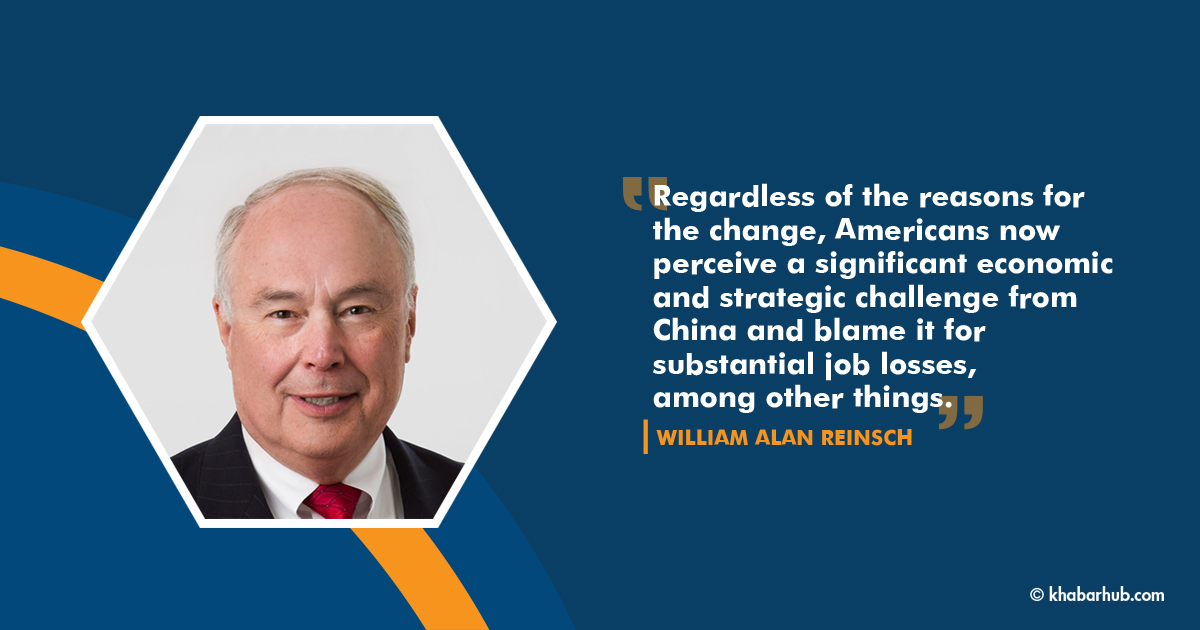Last week, CSIS held its biannual forum with former U.S. trade representatives. We had eight out of the nine—a record—and it was a stimulating and enlightening discussion, particularly for Trade Representative-designate Katherine Tai, who I hope was listening in. If you missed it, you can go to our website and take a look.
The first question was the obvious one that is currently being much debated in trade circles. After four years of an “America First” trade policy, where do we go now?
Back to the trade liberalization policies that have been our hallmark in the post-World War II era, continue with what President Trump started, or go on to something new?
We got a number of suggestions about what to do but not a definitive answer to the question, aside from none of them wanting to continue the policy of the last four years. Instead, I am going to try to address it, but, fair warning, this is only a start. It will take several columns for a full discussion.
The short answer is that we are not going back to the post-war era, and we are not going to continue Trump’s policies.
Countries have long records of enacting sweeping laws and then doing little or nothing to enforce them. The same is true of trade agreements, and one place where people on all sides of the trade debate might find common ground is agreeing that commitments made should be clear and enforcement vigorous and transparent.
We are going on to something new that has yet to be clearly defined except in the broadest terms—a policy that works for all Americans, including workers, and not just the rich and the big corporations. We will likely spend the next several years debating what that means.
While Trump may have had a catalytic effect in getting us to this point, I think there are two big trends that began before his arrival on the scene.
One has been the sharply changing U.S. attitude toward China. After years of the U.S. public and businesses expressing warm feelings about the Chinese people, if not their government, and supporting cooperation and engagement, now more than 70 percent have an unfavorable view of China, up from 35 percent two decades ago, a trend that began in 2013 and accelerated sharply after 2016.
Regardless of the reasons for this change (I have previously suggested it has more to do with Chinese policies than ours), Americans now perceive a significant economic and strategic challenge from China and blame it for substantial job losses, among other things.
Support for a more aggressive trade policy to counter China has grown as public opinion has shifted, particularly in Congress, where there is bipartisan support for strong action.
The second trend is the increasing sophistication of thinking about trade among traditional trade skeptics, primarily organized labor and the progressive left.
For years, they were perceived as simply opposing virtually all trade agreements as catering to big corporations and not helping workers. This made it easier for the pro-trade forces, primarily business, to characterize them as anti-growth and protectionist.
In recent years, however, they have begun to focus on what they are for, rather than what they are against. The most obvious example is the United States-Mexico-Canada Agreement (USMCA), where AFL-CIO president Richard Trumka worked with House Democrats to include provisions dealing directly with the enforcement of worker rights in Mexico.
His goals were specific and attainable, and in the end he got much of what he wanted and ended up supporting the agreement.
The USMCA, however, was a particular case, not a policy. There were well-established labor problems in Mexico; a long record of failure to deal with them in the USMCA’s predecessor, the North American Free Trade Agreement; and no shortage of ideas on what to do about it.
Going back to pre-Trump policies will not address either challenge, and neither will simply continuing the scattershot approach of the past four years.
The remedies there might not be necessary for some countries, such as the United Kingdom and Japan, and they might not be appropriate for other countries with different labor issues.
This is an important point because the controversy in trade agreements is often not over the broad language imposing general obligations—to preserve workers’ rights, protect the environment, safeguard intellectual property rights, etc.—but over specific language, or the lack thereof, on how those obligations are to be implemented and enforced.
Countries have long records of enacting sweeping laws and then doing little or nothing to enforce them. The same is true of trade agreements, and one place where people on all sides of the trade debate might find common ground is agreeing that commitments made should be clear and enforcement vigorous and transparent.
Those trends tell us a bit about where we are now and how we got there. A vigorous and serious economic and strategic challenge from China and a newly coherent progressive left articulating a positive alternative trade policy are forcing a debate over two key issues: how do we use trade policy to protect our economic and security interests, and how do we use it to reduce inequality and promote the interests of all segments of our population.
Going back to pre-Trump policies will not address either challenge, and neither will simply continuing the scattershot approach of the past four years. So, forward is the only viable direction, and future columns will attempt to sketch out what that might mean.
(William Reinsch holds the Scholl Chair in International Business at the Center for Strategic and International Studies in Washington, D.C)
Copyright: Center for Strategic and International Studies.









Comment